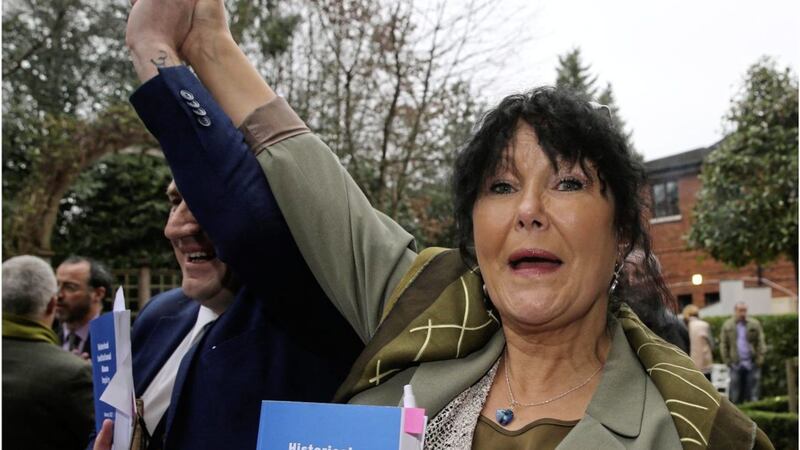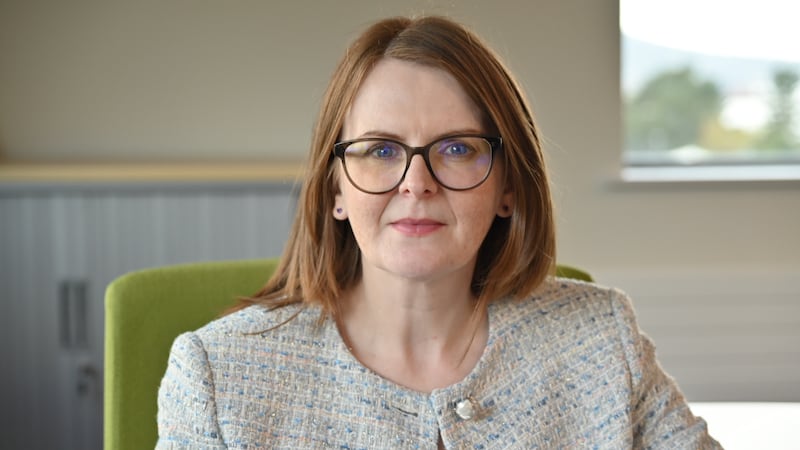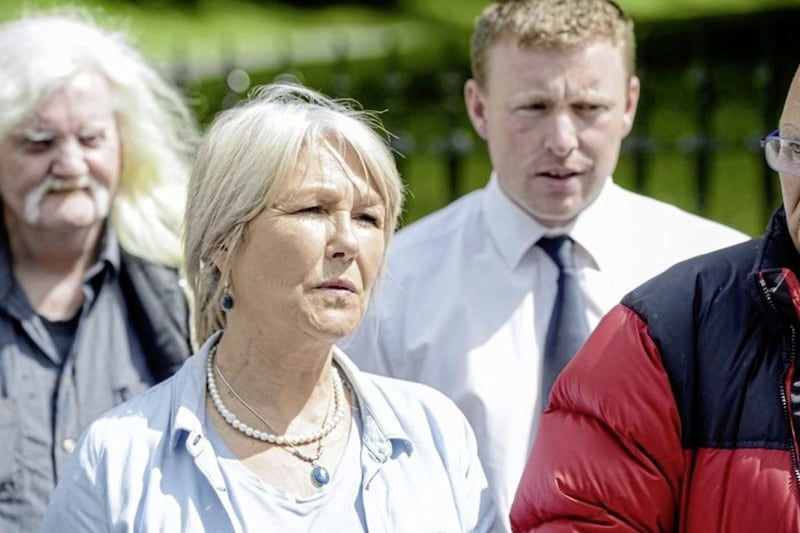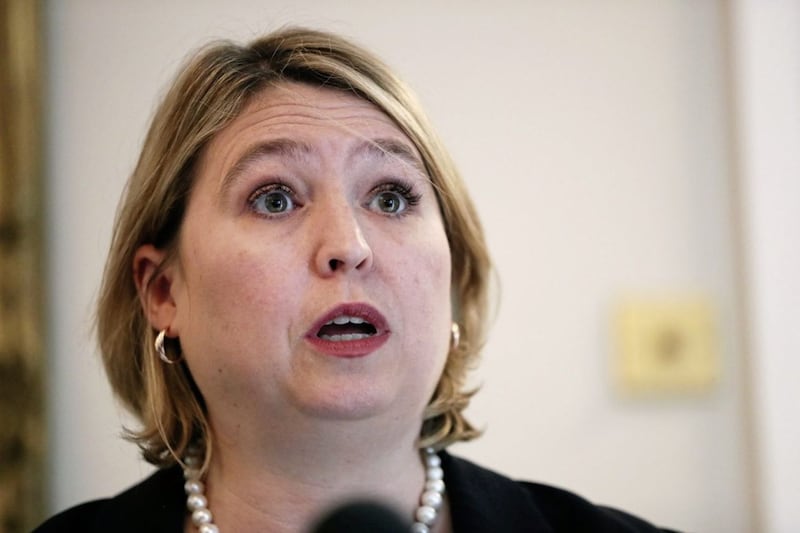Historical abuse survivors have accused politicians of putting their own needs before victims as they continue to wait for financial payments promised 17 months ago.
Victims have warned that many have been left suicidal or facing financial ruin as the current Stormont impasse means that the findings and recommendations of a four-year inquiry into state and church abuse have still not been presented to the assembly.
The report, which was published just days before Stormont collapsed in January, promised victims state-backed compensation payments of up to £100,000. Victims and government bodies were advised in November 2015 that the report would be recommending financial redress.
However, the failure of the region's two largest parties, the DUP and Sinn Féin, to form a powersharing government has meant the inquiry's recommendations have not been implemented.
"We are ashamed of our government for not getting itself together and not looking after the most vulnerable in society," said Margaret McGuckin, of the campaign group Survivors & Victims of Institutional Abuse (SAVIA).
"Many of our people are just going to pass away before this is addressed, or just give up. Many are in a suicidal state. Many have been left in debt buying things on credit on the understanding they were to be compensated.
"We are trying to lift each other up. We built up their hopes with this inquiry and now they are just shattered."
Secretary of State James Brokenshire recently admitted in a letter to DUP MLA Alex Easton that the implementation of the recommendations was not likely to be imminent.
He said as the report was commissioned by Stormont's first and deputy first ministers in 2012, they were obliged to lay the report in the Assembly.
"Given the current political situation in Northern Ireland, this is not likely to be imminently possible," he admitted.
However, he added: "Please be assured of my recognition of the significance of the report's findings and the need for recommendations to be acted upon."
Ms McGuckin, who was abused as a child while in the care of the Sisters of Nazareth at their Belfast childrens' home Nazareth Lodge, said: "Maybe our politicians should think about other people, rather than themselves.
"Too many people now have passed away. Many others have just given up hope and wishing they had never talked about it. This is a blistering sore that is never going to heal."
Kate Walmsley (60) who was abused while in the care of the Catholic Church from the age of two to 15, said she had hoped the compensation would pay for her funeral.
"Now I'm getting older, I have started to worry that if my children have to bury me, I haven't a penny to leave them to bury me. I don't want that," she said.
Alan Phillips (44) who was abused while in the state-run Rathgael training school, said: "Have we just wasted our time? I feel like the door has been shut on us again.
"I have five young children. I wanted to set something up into their bank accounts for their future. I have given up on my own future. It is for them."
In January, the Historical Institutional Abuse (HIA) inquiry led by Sir Anthony Hart, outlined a series of recommendations after shocking levels of sexual, physical and emotional abuse at church and state-run institutions in the period 1922 to 1995 were revealed.
Sir Anthony said the minimum payout should be £7,500 with the maximum amount given to those who had experienced severe levels of abuse as well as being transported to Australia in a controversial migrant scheme.
He said the organisations that ran the abusing homes should make a financial contribution to the Stormont Executive-run scheme.
--
The political crisis at Stormont has stalled the implementation of recommendations made in the Historical Institutional Abuse Inquiry, including financial compensation for hundreds of victims. Here are some of their stories.
Kate Walmsley, 60
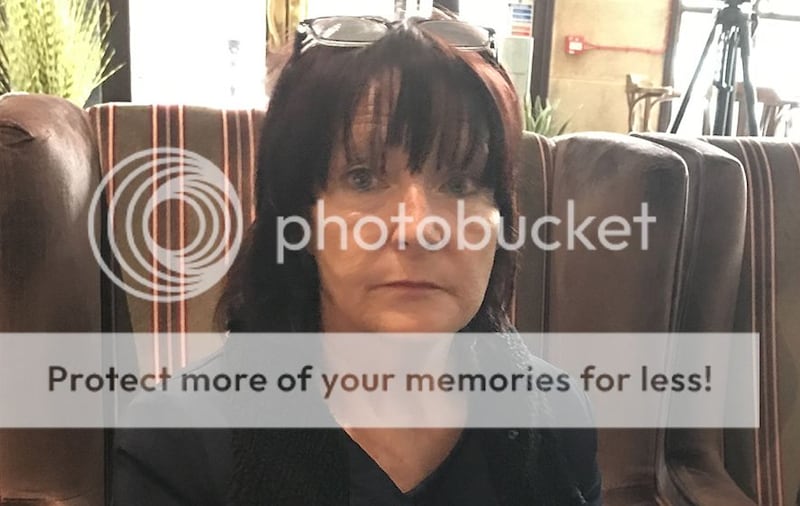
"I was put into Nazareth House in Belfast at the age of two. At the age seven I was transferred to Nazareth House Bishops Street (in Derry). I was moved around to other homes until I was released at 15. I then lived in a derelict house in Derry and stole food to survive.
"I have wanted for so long to go out to America to see my eldest son and my two wee grandchildren. They are in Wisconsin. When I heard about the compensation I put a deposit down on flights. The money has not come through and now I won't be able to go.
"I have another son who lives in Derry and he hasn't been well. I really wanted to help him with the money.
"I feel like nobody cares. The government don't care about us. We are not a priority. It seems that the victims of the Troubles are more a priority than we are.
"We never set out for compensation but we do deserve something for what we went through. These people who abused us weren't convicted. They are sitting back with their feet up.
"Now I'm getting older I have started to worry that if my children have to bury me I haven't a penny to leave them to bury me. I don't want that.
"The politicians, they don't realise how much more they are hurting us. I wish I hadn't opened up. That's the way they leave you, wishing you had just taken it to your grave."
Kate McCausland, whose mother Una Irvine, 86, was in Nazareth Lodge from 1935-44
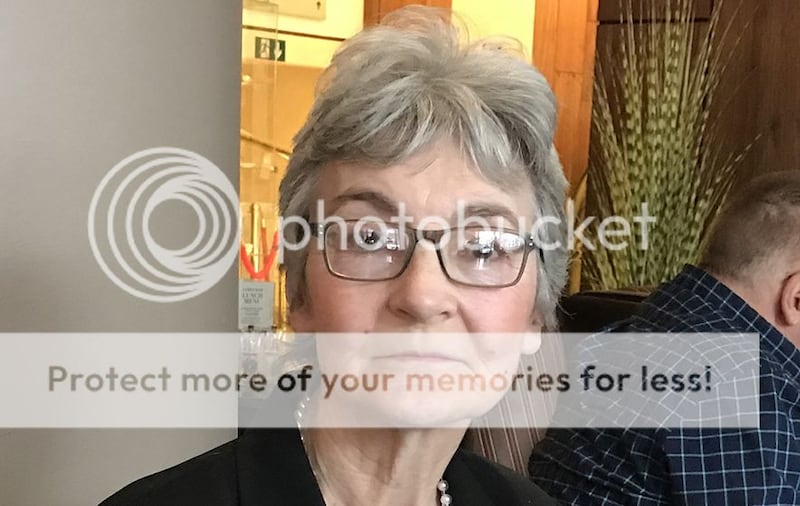
"My mother's case has been statute barred because the abuse occurred outside of the inquiry's timescale so she is not entitled to any compensation.
"She has dementia and it would have been a great practical help to her. She had two sisters who have passed away and she entered the inquiry programme wanting to tell their stories. She wanted to share that compensation with their families because it was important to her.
"Many survivors have passed away or become very seriously ill, physically or mentally, and this still has not been resolved.
"Mum gave evidence to the inquiry at the onset of her dementia and I feel she was treated very harshly during questioning. She was humiliated in that home and I feel she was humiliated again giving evidence. She relived that whole ordeal for nothing."
Alan Phillips, 44
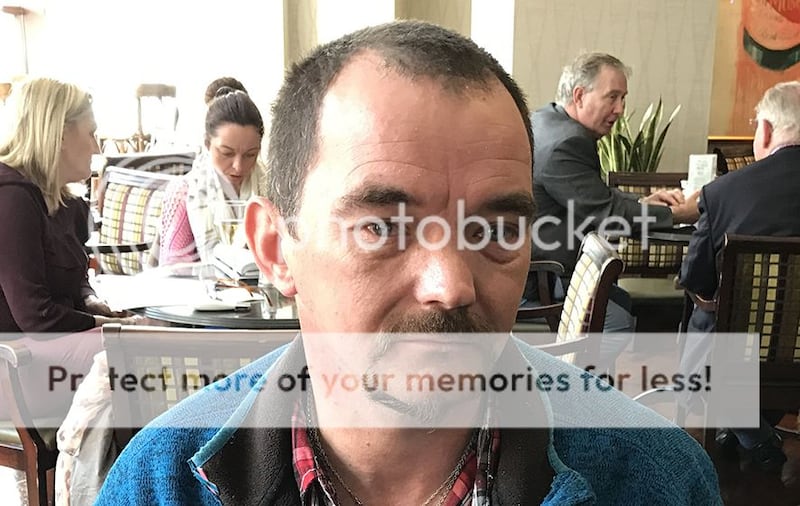
"I was in and out of Rathgael from 1984 to 1991. What happened ruined me. The day of the report was a feeling of relief. It was like getting to the top of the ladder. Now it feels like we have been shoved off the ladder. I feel devastated. Have we just wasted our time? I feel like the door has shut on us again.
"In terms of the compensation, I have five young children, I wanted to set something up into their bank accounts for their future. My future has already been ruined. I have given up on my own future.
"I have been up and down the hill, a lot of suicide attempts. I didn't get any help from the care system.
"I just want a brighter future for the kids. That's my main focus. I'm just trying to keep my head above the clouds. I don't know if the government understands what is going on around them. I don't understand how they are getting paid for jobs they are not even doing. I'd like a job like that."
Cyril Glass, 55

"I was sent to Rathgael Training School with my twin brother Philip Glass at the age of 12 for skipping school. My brother died three years ago of cancer and it is important for me to get justice for him. This whole thing, it is him that spurs me on.
"We were just 12 years old. We were terrified, really scared. There was a lot of physical and mental bullying by children and staff. What happened there to me and my brother has affected me emotionally all my life.
"The week the report came out the government collapsed - you couldn't make it up. We need justice. Yes, the day of the report was great. Everybody was elated and felt a sense of justice. But when things settled, the weeks went by and we realised there were things that weren't right.
"I bought a car from a dealer on the understanding I would pay the remainder in a few months. When the government collapsed I didn't know what to do. A good friend of mine lent me the money to pay the dealer off. That is the sort of thing a lot of us have done on the understanding of the money coming. "
Una McNeice, 50
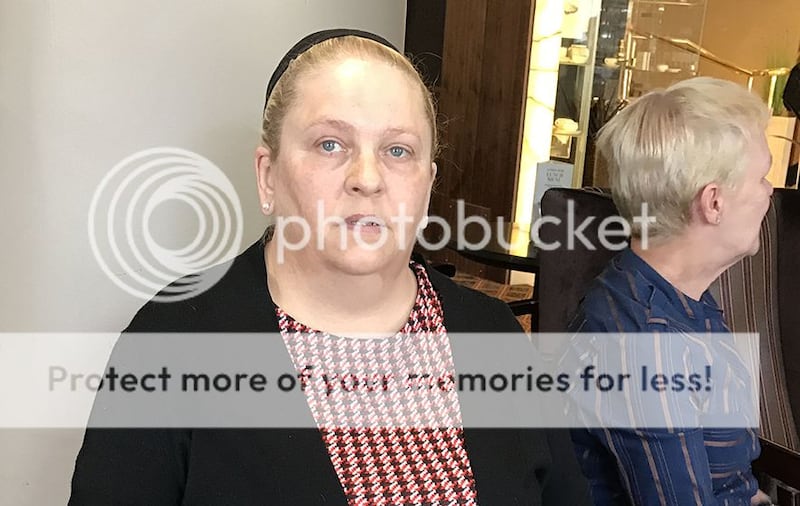
"I was in Nazareth Lodge from the age of five to 10. I have had nothing but physical, mental and emotional abuse from the day I was born. My sister and two wee brothers were all put into homes. I just carried the abuse I suffered there with me all through my life.
"On the day of the report I felt vindicated. Now the collapse of the government has put us in limbo again. I dared to hope that life might start to get better, now this. I am in debt already. I made more debt for myself. I got myself a new car believing I was going to get compensation.
"I'm in limbo. With the HIAI going the way it is we are forced now into considering taking a civil case. But I work 22 hours a week and I can't get legal aid to take a civil case. I couldn't afford to take one. It is making me feel very, very down.
"I think a lot of people have got themselves into debt thinking we were going to get the money soon. But the government are not taking us into consideration. Look how much they are still getting paid, look at RHI (the Renewable Heat Incentive), all that waste, while we are let down again.
Gabriel Murray, 62
"I was put into care as a baby into Nazareth Lodge and then Rubane House. Nazareth Lodge was the worst. There was this nun, she used to lift you off the ground by the cheeks. If you wet your bed, they frightened you by trying to put you into the washing machine. You got a good hiding if you wet the bed.
"One day recently I was walking up the graveyard and I saw one of the nasty nuns. I called out to her. I said, 'remember what you did in Nazareth Lodge when I wet the bed?'. She came back and said, 'I looked after you when you were a baby'. I said, 'no you didn't'.
"The compensation would help me build my life up. I'd spend it wisely. Politicians need to do their job instead of meetings after meetings. I felt vindicated on the day of report but now I'm left not knowing what is happening."
Anne-Marie Hanna, 61
"I was in St Joseph's baby home from a baby then Nazareth House when I was four. I left when I was 19. After that I lived in hostels my whole life. I also slept out rough. I was picked up by police at 4 in the morning sleeping rough. I slept in a phone box. I eventually got my own place, a little flat, with the help of the Simon Community about 10 years ago. They put a roof over my head and a bed to sleep on.
"I've also been in and out of psychiatric hospitals after I tried to take my own life a few times because of what the nuns had put me through. I am on medication so that is helping me.
"At no stage have I felt any sense of justice. I went through the inquiry, it was nerve-racking. It brought it all back. I just broke down crying before I even got into the courtroom. I couldn't cope. It brought back too many memories. But in a way I am glad I did it. It gave me a voice and helped to get the truth out, but now it feels like an anticlimax."
Tony Hanna, 62
"I was in Nazareth Lodge from the age of six months to 10 years old. I was then sent to De La Salle Boys Home until I was 15. I was attacked while I was in care and my eyesight was damaged. I wasn't put through an operation as a child to fix it and have now been left partially blind.
"I took a civil case and was awarded £15,000. That is £1,000 for every year I was abused in care. I was unaware that because I had taken a civil case I would not be entitled to compensation through the HIAI scheme. I feel cheated.
"It is awful we don't have a government to fight for a good deal for us, to help us fight for justice. I don't feel I have had any justice.
"We have been hurt over and over again. An apology is good, a plaque is good, but financial compensation would be something to help make life a bit easier for the few years I have left. £1,000 for each year I went through is very bad. I have had to struggle most of my life."
